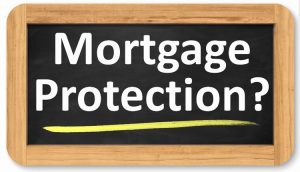

Whether you are buying home insurance for the first time or wanting to update your current home insurance policy, knowing what you need is essential. You are not legally obliged to take out house insurance however if you have a mortgage your lender may require you to purchase a home insurance policy. Home insurance will protect you from any financial disaster, if your house is destroyed, or even theft of your belongings. Making sure you have the right home insurance cover will give you peace of mind and lower the burden of having to replace your belongings or even repair your property. Before you make any decision on purchasing home insurance, it is important to be familiar with the different types of household insurance that are available to you on the market. Remember purchasing household insurance is essential if you own or are thinking of buying a house.
What is Home Insurance
Home insurance cover protects your house structure against loss or damage that may occur to your property. A standard home insurance policy cover includes contents cover, personal liability, and building cover.
Depending on your preferences you can get cover for either or all of these.
Mortgage Protection
 If you have found your dream home and have applied for a mortgage, it is essential as a mortgage holder that you purchase mortgage protection insurance from top Irish providers such as low.ie. Mortgage protection is a policy that protects the mortgage lender in the event that the person who is borrowing the money may default on payments, may die, or are not able to meet the contract mortgage payments. There are various types of mortgage insurance these include:
If you have found your dream home and have applied for a mortgage, it is essential as a mortgage holder that you purchase mortgage protection insurance from top Irish providers such as low.ie. Mortgage protection is a policy that protects the mortgage lender in the event that the person who is borrowing the money may default on payments, may die, or are not able to meet the contract mortgage payments. There are various types of mortgage insurance these include:
- Mortgage title insurance
- Private mortgage insurance
- Qualified mortgage insurance premium.
Types of Home Insurance
-
Contents cover
Contents cover under home insurance will protect your belongings inside the home in the event of a fire, burglary, or any other damage. These belongings include furniture, clothing, electronics, and much more. When buying insurance, the cheapest policy is not always the best. If an incident did occur on your property, by having this policy you would receive funds for the value of the items that may have been stolen or damaged which will be explained in the policy content.
-
Personal Liability
Personal liability protects you in the event a guest or visitor in your home sustains an injury on the property or elsewhere you will be covered for a legal settlement and legal fees. Some policies may also include damages that you are liable for but that may have happened outside the home.
-
Building Insurance
As well as the structure of your home, the building cover provides protection to any permanent fixtures such as kitchen and bathroom fittings, as well as the roof. It also extends to the building outdoors such as sheds and garages and also the walls inside. It may not be a legal requirement but most mortgage lenders will suggest that you include buildings cover under your home insurance policy before they would even consider giving you a mortgage to buy a house.

Other optional home insurance cover
Landlord Insurance
Landlord insurance offers cover for all the risks that may come with renting out a property you own. Being a landlord, you are responsible for the maintenance and upkeep of the building that you rent out to tenants. The building cover policy won’t cover landlords who own property. You will need landlord insurance specifically which will protect and cover you in the event of loss of rent and public liability. Combining landlord, building, and contents cover will protect your building, the contents inside in the event of a fire, theft, or any other incident. It will also cover any fixtures in the rented property such as carpets, ovens, window coverings, light fittings, and stovetops. You are also protected in the event of loss of rent due to unpaid rent by a tenant.
Unoccupied home insurance
If you have a property or house that may be unoccupied for an extended period of time you may need to look at your home insurance policy. A lot of the policies for unoccupied houses will depend on what state the property is in. Your property should be secured and safe and maintained to the right standards for any insurance company to insure the house. This insurance policy will protect your home in the event of a fire, flooding, or theft as well as liability for any damage that your property may cause to another such as chimney falling off the roof onto another home. So, if you need to leave your home unoccupied for a certain period of time you will know and feel secure that your home is safely insured with a reputable home insurance provider.
What is the excess
The excess amount is the money you pay towards any claim before your insurance company pays the balance. Your insurer will reduce any claim settlement by the excess amount that was stated on your policy. You cannot claim for any amount less than the excess. On a standard home insurance policy, the excess amount is normally between 100 to 500 euros. For subsidence claims the excess can be a higher amount. Sometimes if you agree to pay a higher excess amount with your insurer you could get a discount on your premium.
